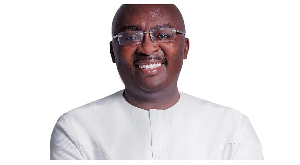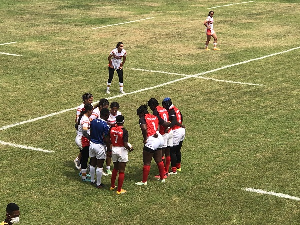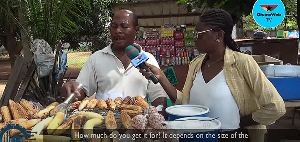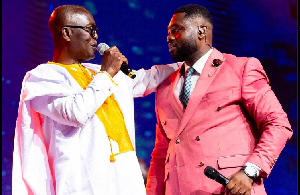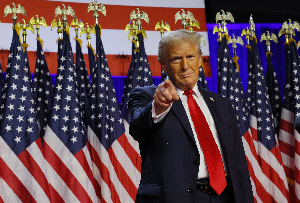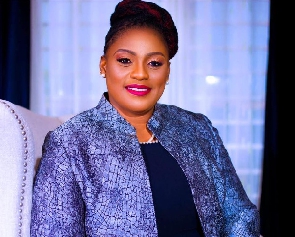Free and pluralist elections have become so widespread in Africa synonymous with conflict over the past 30 years, this has become the order of the day since the third wave of democracy in Africa. It is interesting to note, ‘countries in which people don’t vote have become as rare as countries in which people don’t drink Coca-Cola’.
Indeed, between 2007 and 2021, close to about 120 legislative and 100 presidential elections were held in 43 African countries including fierce political party activism, the overwhelming majority of which were emerging from decades of single-party regimes and dictatorships.
Political liberalization was accompanied by profound changes in the media sector. State media monopolies gave way to a proliferation of private newspapers; this was followed by an increase in the number of private radio stations (whether commercial, denominational or community); and finally an independent television industry also emerged at the beginning of the twenty-first century.
In Ghana, Elections, both in the way they are conceived and in the way they are held, not only test the democratic practices of parties and rulers; they also reveal journalists’ professionalism at a time when much is expected of the media and they also face intense political pressure, which can make their work particularly hard.
The task is even greater when post-election political parties’ internal conflicts become intense. Elections are seen as a pillar of democracy, enabling voters to elect representatives to exercise a public mandate on their behalf but this leads to serious internal conflict when a particular party is not successful at the poll just as Ghanaians witnessed in the year 2020 characterized by the infamous election petition filed by the main opposition party’s presidential candidate.
Conflict on other hand has been described by some scholars and practitioners as the necessary evil for reforms and redevelopment but a deadly venture that can be very destructive to democratic development processes.
The conflict has been defined as the incompatibility or competition within (intra) or between (inter) individual (s) or group (s) of their interest, values, ideologies, identity and needs. Studies have shown the intra conflict thus conflict that occurs within is more devastating than inter- conflict (between two parties) because belligerent are more aware of themselves and sometimes very difficult to resolve.
At the state level, it is believed that democratic states do not fight each other which then guarantee some form of stability opposite to intra-conflict fought on identity and ethnic lines.
The media’s role in this process is crucial. They provide regular information to citizens to assess their party’s performance at the end of a term in office and to renew their trust in the same representatives or to opt for change.
This is where the media feeds on setting the agenda to further compound the problems of political parties after every general election in Ghana in the wake of internal elections within the various political parties in preparation for the next general elections routinely.
However, journalists easily succumb to political pressures, the attempts at manipulation and the urgency with which journalists have to operate during this time can lead to professional shortcomings and breaches.
The media thrives on the conflict because ‘when it bleeds, it sells’. It has become a routine that every four years after the general elections both the national democratic congress and the new patriotic party face a lot of internal conflicts which tends to affect their political fortunes in the subsequent elections when it is not managed constructively.
This is evident in the run-up to the 2016 general election where party stalwarts within the NPP were brutally dealt with and the media didn’t miss it, but to report extensively on these happenings without professing any constructive contribution to resolving these conflict probably due to lack of conflict resolutions skill and competence on the part of journalists.
Since the media are often more than simple observers in conflicts, becoming actors or victims (or both) they do not emerge unscathed from a war.
Similarly, right after 2020 and even before, the national democratic congress is faced with multiple internal conflicts which have resulted in the sanction of some key members of the party, the likes of Allotey Jacobs who has been described by some babies with sharp teeth as a ‘traitor’ and ungrateful person on a mission to destroy the very party that gave him substance in the political society.
In all of this, the media’s interest is to report, but beyond the reportage what really can the media do to contribute to resolving this annual ritual of internal political conflict which can degenerate into a national security challenge. Recently, Ghanaweb carried a story on the trial of Gregory Afoko and one other in the alleged murder of the late Adams Mahama who was the New Patriotic Party’s regional chairman for the Upper East region.
From the foregoing analyses, it is evidently clear that the media do not have the competence and skill to resolve conflict but their reportage contributes to the peacebuilding process within the political space in Ghana.
Even though the phenomenon of reporting conflict is encouraged, the media regime has become a tool for causing and cementing conflict in Ghana purely based on the ‘Agenda Setting’ and Hypodermic theories of media communication (Journalism).
Opinions of Friday, 2 April 2021
Columnist: Sadiq Adu-Twum







